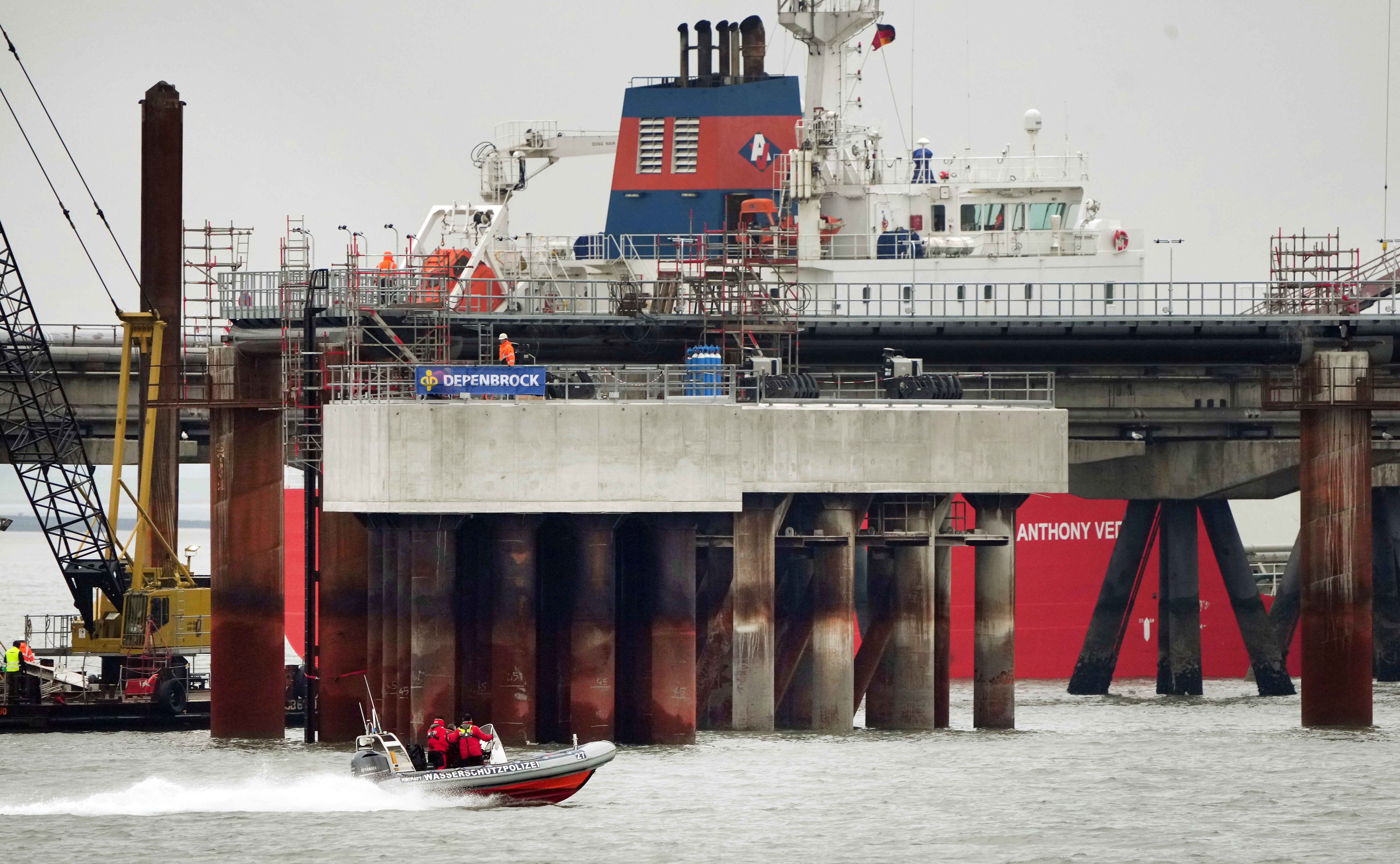First floating LNG terminal arrives at German port
The first of several ships that will serve as floating terminals to receive liquefied natural gas imports in Germany have arrived off the Baltic Sea port of Mukran

The first of several ships that will serve as floating terminals to receive liquefied natural gas imports in Germany arrived Wednesday off the Baltic Sea port of Mukran.
In response to Russia's invasion of Ukraine, Germany has scrambled to secure alternative sources of gas to replace Russian supplies, on which the country had long relied.
The 280-meter-long (918-feet-long) Neptune is due to begin operation in nearby Lubmin on Dec. 1.
Similar so-called floating storage and regasification units are scheduled to arrive at the North Sea ports of Wilhelmshaven and Brunsbuettel later this year.
Along with other measures taken by the government — such as reviving mothballed coal and oil-fired power plants and extending the lifetime of its three remaining nuclear reactors — “this winter Germany's energy security seems assured,” Chancellor Olaf Scholz told lawmakers Wednesday.